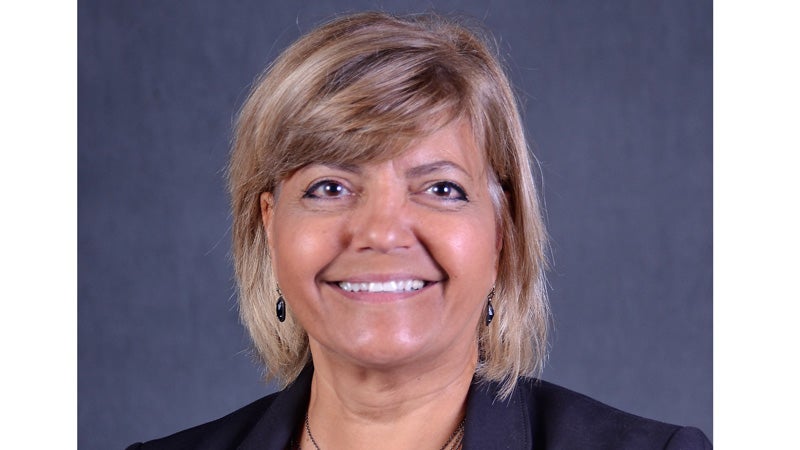Pratt: Aging population creates healthcare shortage
Published 12:00 am Wednesday, August 21, 2019

- Mary Ellen Pratt
“The aging of baby boomers means that within just a couple decades, older people are projected to outnumber children for the first time in U.S. history,” said Jonathan Vespa, a demographer with the U.S. Census Bureau.
By 2030, all baby boomers will be older than age 65, expanding the size of the older population so that 1 in every 5 residents will be at retirement age. The aging population, who present a greater need for care, is just one of the factors contributing to a global healthcare worker shortage.
An aging population, aging workforce, increases in chronic diseases and limited education programs have created a quickly growing demand that is not met with an adequate supply. A 2016 study published in Human Resources for Health indicated a global demand for 80 million health care workers by 2030. The supply of healthcare professionals is expected to reach just 65 million, leaving a shortage of 15 million worldwide.
FEDERAL AND STATE RESPONSE
Without adequate healthcare workers, access to care—especially in rural areas—is deeply threatened. The global shortage in healthcare has hit home and continues to be an ongoing governmental concern leading to new policies, ideas and opportunities in our nation and state.
- Health Professional Shortage Areas (HPSAs) were designated to offer incentives, such as student loan repayment options, to certain healthcare workers that choose to work in areas of great need
- A push federally to lift a 20-year-old cap on graduate medical education to increase training capacity of physicians in medical schools
- Telemedicine “remote healthcare” continues to be explored in different specialties
- Nurse Licensure Compact increases access to care by allowing nurses in participating states to practice in other states without having to obtain additional licensing
- Additional opportunities are now available for certified health professionals working full-time who want to advance their careers
- Nationwide promotion of opportunities in healthcare and allied health
LOCAL ACTIVITIES & OPPORTUNITIES
Our hospital was first approached to participate in a statewide campaign supporting career opportunities that required a certification, not necessarily a four-year college degree. The campaign branded as “Louisiana Calling” promotes high-value careers in healthcare and beyond that are in need locally and can help people in our state find a pathway to financial security. Our participation in the campaign allowed the hospital to promote less known job opportunities in health care.
Most recently, we were approached by a local official to discuss a partnership between the hospital and the St. James Parish Public School System Career and Technology Center (CTC) which aims at developing the next generation of skilled workers for our region. According to the St. James Parish School’s Human Capital Center Workforce Developer, Troy Borne, only 15% of the population in St. James Parish holds a Bachelor’s degree—leaving our parish with a large opportunity.
“Career and Technical Education give students the academic, technical and soft skills needed to obtain and maintain a career in a high-demand, high-wage industry sector. Not all students are college students, but all students are career students,” said Borne.
The CTC offers education and training needed for high school students to acquire a career in high-demand areas including healthcare. “Allied health classes at the CTC not only introduce students to the medical field, but also offer an opportunity for students to earn a certification before they even graduate,” said Kelsi Falgoust, BSN, RN, and Allied Health Instructor. “Students in Allied Health II learn and perfect skills such as patient assistance, understanding vital signs, catheter insertion, phlebotomy and more.”
Upon successful completion, these students earn certification as a Patient Care Technician (PCT)—one of the many healthcare careers included in the global shortage. A PCT certification affords graduates many opportunities such as working as a phlebotomist in a lab or assisting with various medical duties in a hospital, ER or clinic. Currently, there are over 1,200 unfilled PCT jobs available in Louisiana alone.
As a fellow governmental entity, St. James Parish Hospital’s Board of Commissioners approved a partnership that allowed the hospital to support the CTC and early allied health training by donating surplus, expired supplies which will be used for hands-on training during PCT certification training.
A healthcare worker shortage is a true public concern. Hospitals need healthcare professionals to fulfill their missions and we are committed to partnering with other entities that are dedicated to increasing the number of qualified, trained staff in the medical field.
Mary Ellen Pratt is St. James Parish Hospital CEO. She can be reached at info@sjph.org.




